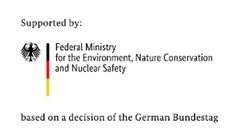Brazil has displayed broad engagement of the financial community when it comes to green finance initiatives.
In 2014, the Central Bank of Brazil (BCB) became one of the firsts to adopt guidelines with regard to environmental and social responsibility of financial institutions. It is the only central bank in the Americas that has regulations or supervisory expectations regarding ESG matters[1]. In 2020, it launched its agenda sustentavel (sustainability agenda). This agenda aims at promoting sustainable finance and sustainability risk management within regulated institutions and incorporate sustainability variables within the BCB decision making process. Along with greening its own portfolio management, such as its international reserves management, it is exploring the idea of implementing a “green liquidity facility” which would accept green collaterals at preferential terms in refinancing operations.
The private sector also engaged into green finance independently. As early as in 2004, Itau Unibanco marketed a fund focusing on social and environmental outcomes. FEBRABAN, the main banking federation of Brazil, released a Green Bond guide in 2016 and guidelines for voluntary implementation of the TCFD in 2018[2].
However, the numerous initiatives on green finance in Brazil are still insufficient to foster an alignment of capital flows with a less than 2°C global warming. The recent PACTA assessment of the Brazilian fund industry implemented by RMI shows that capital allocation of the Brazilian funds industry is not aligned with a less than 2°C scenario such as the Sustainable Development Scenario of the International Energy Agency. The PACTA tool allows to assess whether financial portfolios are aligned with different climate transition scenarios. Its application to the Brazilian funds industry showed that fossil extraction (coal, oil, gas) of companies in portfolios (equity, bonds) of Brazilian funds is expected to keep increasing until 2026, while it should decrease to be aligned with a less than 2°C scenario. Power generation companies in portfolios of Brazilian funds is not either expected to be aligned with such a scenario by 2026, except, to some extent, hydro-based power. When it comes to vehicles production, companies in portfolios of Brazilian funds are expected to increase significantly electric vehicles production in a way compatible with this scenario, but Internal Combustion Engine vehicles production will also increase significantly above what it should to be compliant with a less than 2°C scenario.
This policy brief takes stock of the results of the PACTA analysis of the Brazilian fund industry. They show an urgent need to accelerate the greening of capital flows – which entails to reduce financial flows directed towards high-carbon companies and enhance capital flows directed towards low-carbon production. This calls for strengthened regulations and ambitious policies to be implemented by Brazilian regulators, central bank and government. This policy brief aims at putting forward policy ideas for Brazilian policy stakeholders to advance further the sustainable finance agenda in the country, focusing on climate-related aspects.
About the funder
This project is part of the International Climate Initiative (IKI). The Federal Ministry for the Environment, Nature Conservation and Nuclear Safety (BMU) supports this initiative on the basis of a decision adopted by the German Bundestag. This report reflects the authors’ views only, and the funders are not responsible for any use that may be made of the information it contains.

[1] WWF, 2021 SUSREG Annual report – A baseline assessment of sustainable financial regulations and central bank activities, 2021, available at https://www.susreg.org/WWF_SUSREG_Annual_Report_2021_FINAL_UPDATED.pdf
[2] Banco Central do Brasil, BC# Sustainability, 2020, available at https://www.bcb.gov.br/content/about/presentationstexts/BCB_Agenda_BChashtag_Sustainability_Dimension_Sep2020.pdf


